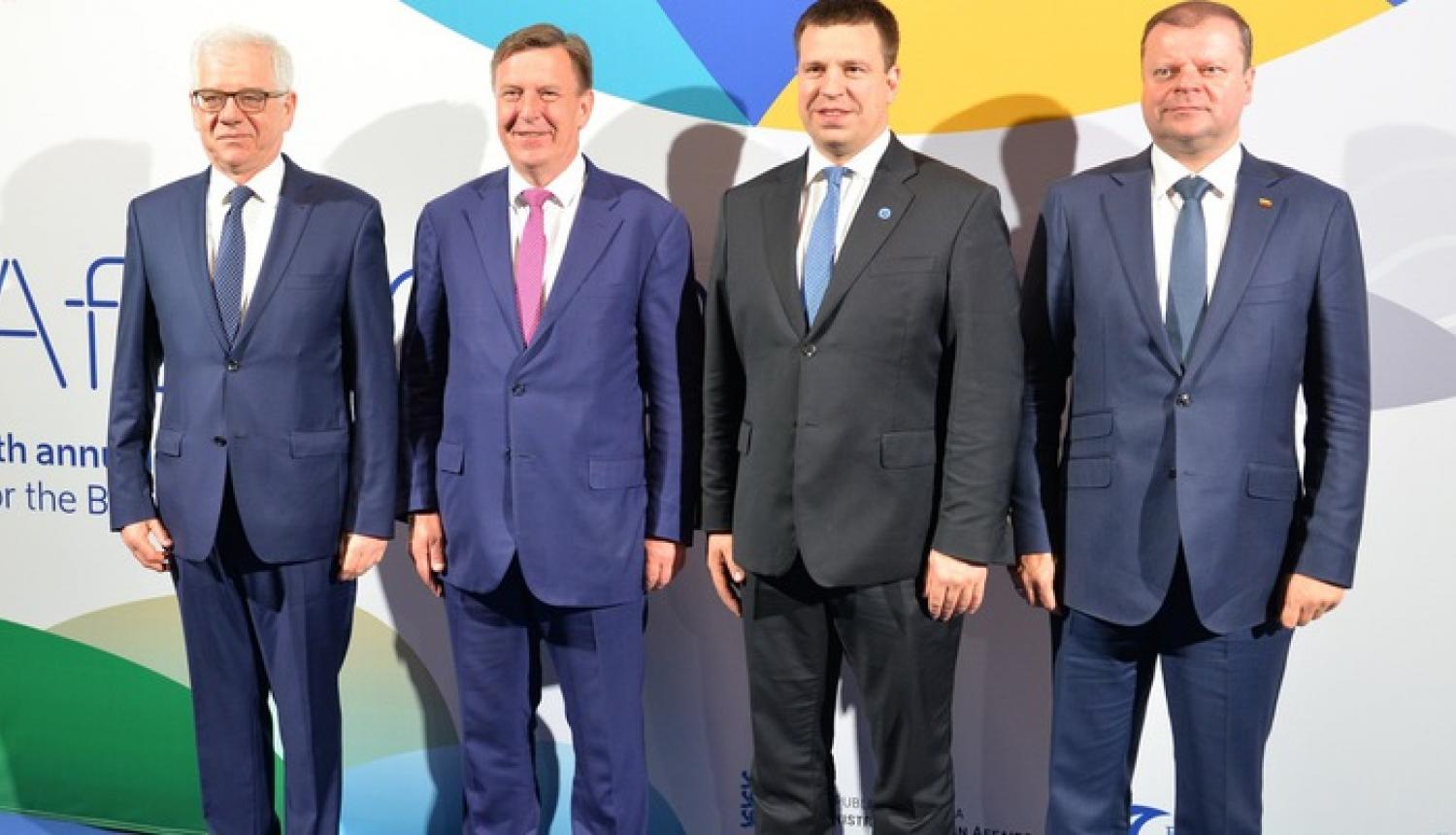On Monday 4 June, Prime Minister Māris Kučinskis participated in the regional meeting of the Prime Ministers of the Baltic States and the Minister for Foreign Affairs of the Republic of Poland in Tallinn.
The meeting was attended by M. Kučinskis, Jüri Ratas, Prime Minister of Estonia, Saulius Skvernelis, Prime Minister of Lithuania, and the Minister for Foreign Affairs of Poland Jacek Czaputowicz. The focus of the meeting was on the security in Europe, energy policy and the Rail Baltica project.
In his address to the Baltic and Polish colleagues regarding security issues, M. Kučinskis pointed out that NATO's capacity to respond to crisis situations needs to be improved, as well as NATO’s presence in the region should be further strengthened and developed. Other important areas of cooperation include hybrid hazards, cyber security and coordination of the crisis management training.
"It is important that our regional security challenges remain central to NATO’s agenda," said M. Kučinskis.
It was also emphasized that further development of NATO's expanded presence requires decisions on the support of the navy and air forces. Rapid transition from NATO airspace patrolling in the Baltic States to the air defence operation and the improvement of air defence capabilities in the region are essential. At the same time, it is important to strengthen NATO's naval forces in the Baltic Sea Region, to improve the capacity of the marine component in order to promote stability and implement deterrence.
As regards Russia's factor, M. Kučinskis stressed that there is currently no reason to change NATO's policy in relations with Russia. We do not see any significant changes in Russia’s policy.
During the discussions on energy issues, the Prime Minister emphasized that the synchronization of the Baltic power grids with European networks is an important project for Latvia and for the entire region, which will strengthen the security of electricity supply of the Baltic States and will make a significant contribution to the establishment of the Energy Union.
M.Kučinskis also emphasized that a solution should be chosen in this area that would make it possible to explain its costs to consumers.
Moreover, investment and operational costs are both at issue here. The results of the dynamic and frequency studies provide a solid basis for the assumption that the most suitable solution, incl. taking into account the security of energy supply, would be the Baltic States' synchronization with two AC lines between Poland and Lithuania. Studies also suggest that, in the case of other scenarios, operational costs will increase significantly, which is not an effective log-term solution. In addition, it is clear that joint efforts are needed to ensure safe and sustainable implementation of reliable and sustainable electricity networks of the Baltic States with continental European networks without delay.
As regards the Rail Baltica project, M. Kučinskis highlighted the progress in implementing the project, and pointed out that the Baltic States have every opportunity to fulfil the necessary preconditions to demonstrate the maturity of the project and attract additional funding within the framework of current EU budget. It is also essential that sufficient EU funding is provided for the Rail Baltica project in the new EU’s multiannual budget after 2020.
Andrejs Vaivars
Press Secretary to the Prime Minister
Mob.: 29228678
E-mail: Andrejs.Vaivars@mk.gov.lv



